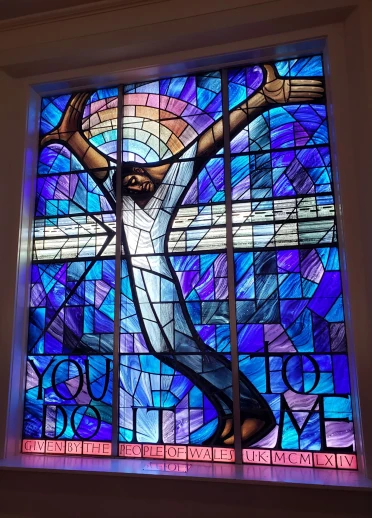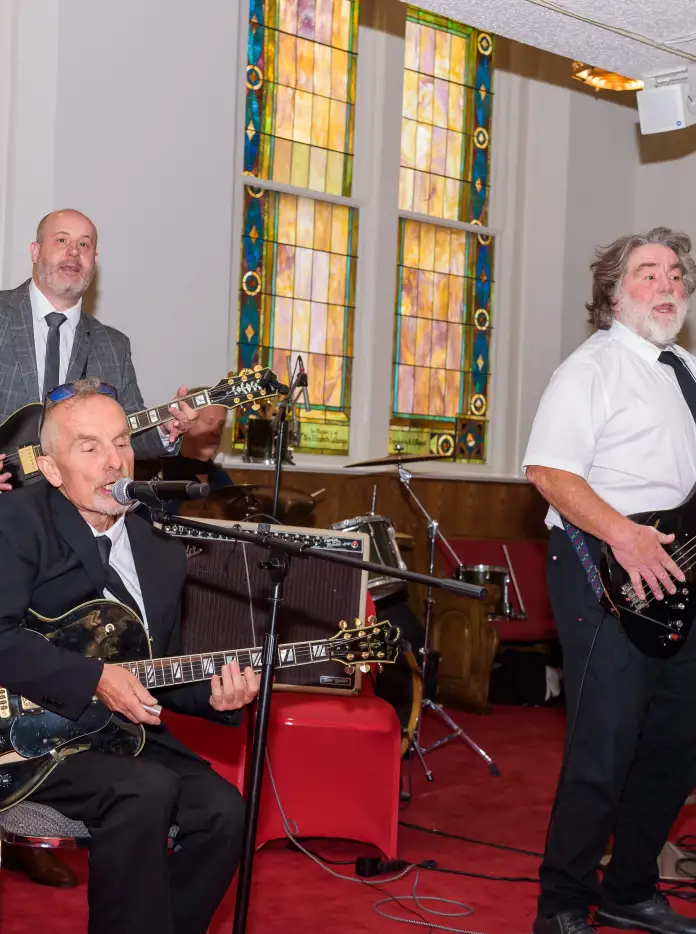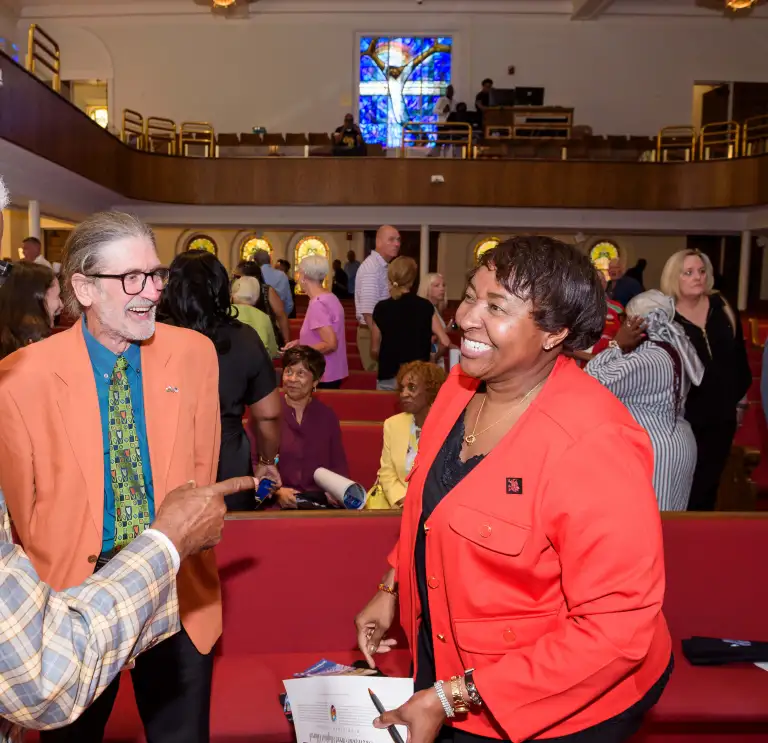The bombing of the Sixteenth Street Baptist Church in Birmingham, Alabama was one of the most shocking and significant events in modern US history. On Sunday 15 September 1963, the racially motivated attack claimed the lives of four girls (Addie Mae Collins, Denise McNair, Carole Robertson, and Cynthia Wesley), and injured over 20 people. The event became a pivotal moment in the American Civil Rights movement, with news of the attack reverberating around the globe.
Upon hearing the news, Welsh artist John Petts, was motivated to do something. He began a campaign through the Western Mail to raise money to create a new stained-glass window for the church. Reaching out to the people of Wales, thousands lined the streets to donate pocket change – in an early example of modern crowdfunding. With donations limited to a maximum of half a crown (less than £2 or $3 in today's money), it was a truly community-led campaign.

The iconic window, featuring a Black Christ with outstretched arms, was installed in 1965. Known as the Wales Window of Alabama, it remains a powerful symbol of transatlantic solidarity and a monument to peace and resilience.
Commemorating 60 years of the Wales Window
To mark the 60th anniversary of the window's installation, the Sixteenth Street Baptist Church hosted a special ceremony on Friday 27 June. As part of the Wales-Birmingham International Friendship Pact, featuring Welsh Government in partnership with Birmingham Sister Cities, the City of Birmingham and Sixteenth Street Baptist Church, the event paid tribute to this enduring symbol of solidarity and the tragic events that led to its creation.
Two delegations from Wales took part in the commemoration. The first featured John Petts’ son, Mick Petts, and Carmarthenshire band The Water Poets. Petts delivered an illustrated talk, providing personal stories on how the window was made and reflecting on its lasting power and impact, with musical reflections from The Water Poets – who performed in collaboration with the local Carlton Reese Memorial Unity Choir.

The second Welsh delegation was the South Wales Police Football Club. They combined their involvement with participation in the 2025 World Police and Fire Games, hosted this year in Birmingham.
Alongside the main service, the commemoration included a breakfast event bringing together local partners from government, culture, education, and business, members of the Church’s congregation, student leaders from the Birmingham Civil Rights Institute, and representatives from local media.
One of the highlights was a moving digital animation of artwork by children from South Wales, with help from The Water Poets and the Carmarthen School of Art, as part the Make it Right project.
Birmingham Mayor Randall Woodfin attended the event, along with survivor Carolyn McKinstry and Kimberly McNair Brock, sister of Denise McNair. A number of local officials spoke at the event, including Birmingham’s Director of the Office of Innovation and Economic Opportunity Cornell Wesley, Birmingham Sister Cities Chair Jennifer E. Gowers and Welsh Government Envoy La-Chun Lindsay. They highlighted the importance of community and celebrated the strong relationship forged between Wales and Birmingham in the years since the window’s installation.

Sixteenth Street Baptist Church’s pastor, Reverend Arthur Price Jr, delivered moving comments. Speaking of John Petts, he said: ‘He offered his work not just as art but also as an act of sympathy and solidarity. What started as a tragedy has gone to build bridges across cultures.’
The event builds on last year’s Birmingham delegation visit to Wales, strengthening connections between community leaders and fostering collaboration across business and culture.
